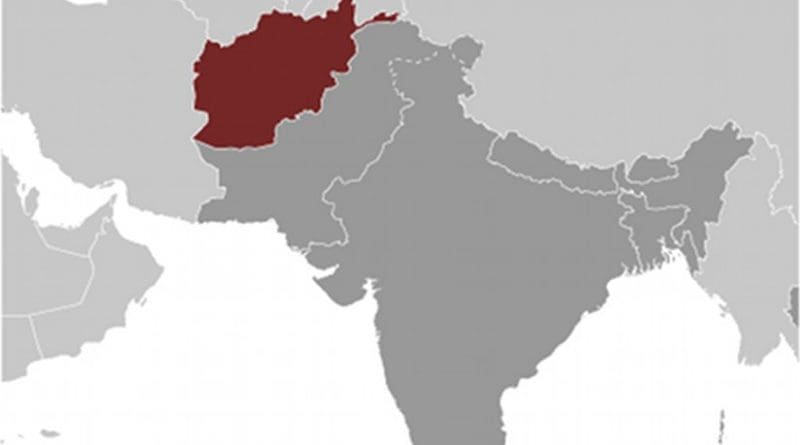Afghanistan Taken Hostage By US Militarization And Pakistani Deception – Analysis
A four-day Loya Jirgah (grand assembly) ended on 19th November in Kabul and endorsed President Hamid Karzai’s decision to negotiate a long-term security pact with the US after 2014 with some restrictions such as curbing night raids by US military forces, handing over detainees in their custody and limiting the agreement to 10 years.
The assembly, in truth, has been Karzai’s latest sad wartime adventure. The Western drawdown could be the thin end of the wedge—soon another civil war could loom and Karzai’s will have a little chance of survival.
Still, Karzai has every reason to be euphoric; the assembly was a success despite the Taliban’s continued threats that they will disrupt the assembly with deadly attacks. The resolutions of the assembly have put Karzai in a stronger negotiating position in the upcoming Bonn II conference, according to CNN due to be convened on December 5th in Germany.
Likewise, the assembly would boast Karzai’s prestige during talks for a written US-Afghan agreement that Washington calls a Strategic Partnership Document.
“I am very happy that you have accepted it and have put lots of conditions on it. I accept this resolution. It is the instruction to the Afghan government from the Afghan people,” Karzai said at the end of the assembly as reported by the Associated Press.
Karzai had never forgotten his regional allies. In order to appease Iranian Mullahs and their powerful proxies in his own government, in his inaugural speech Karzai lavished praises on Iranian policies in the region and Afghanistan. He called Iran “a brother” who is showing more “rationality” than the US ever does, AP adds.
Many Afghan observers believe that the assembly gave rise to many more questions than it could ever answer. The first question that comes to mind is why should Karzai spend donated Western money on a gathering which has no legislative powers and even its resolutions are not binding?
Another equally important question is about the legitimacy and credibility of the assembly. An overwhelming majority of more than two thousand delegates in the assembly have been government high-ranking officials and handpicked allies by Karzai from provinces.
During the past thirty years, Loya Jirgah lost its traditional appeal for it has turned into a rubber stamp for rulers to promote their own agendas. During the Russian occupation, the Communist regime organised several of such plaint Jirgahs in Kabul in order to seek legitimacy.
The meetings of the assembly took place under unprecedented tight security. For four days all schools, businesses and government offices were closed. All attendants and even cabinet members and provincial governors were searched before entering the assembly by special security forces. Karzai himself made 15-odd minutes trip to the assembly by helicopter.
The idea of a Western military drawdown has already thickened smoke in the region and encouraged Pakistani generals and the nation’s military spy agency (ISI) to close links with the Afghan insurgents.
According to Pakistani Express Tribune, the long-time ISI’s ally, Taliban’s Supremo, Mullah Omar has already ordered Pakistani Taliban to make peace with Islamabad and instead “focus on Afghanistan against infidels”. The calm in Pakistani major cities in recent months bears evidence that the Pakistani military might have secretly agreed on a truce with al-Qaida and the Pakistani Taliban.
Nonetheless, the ongoing military stalemate and political stagnation in Afghanistan is largely due to the fundamental Western mistakes: the emphasis on a military solution and an indisputable support for a dysfunctional and corrupt government in Kabul.
Likewise, the situation is fast getting volatile with the West’s continued failure to eliminate safe sanctuaries of transnational terrorist organisations on Pakistani soil and above all failure to put a curb on Pakistani military’s active support for the Taliban. Pakistani military ruling elite considers these sanctuaries as its Caves of Wonders.
The upbeat mood of the assembly was unable to hide the growing anxiety in Afghanistan and in the region over the Western military drawdown. A government led by Karzai in Kabul after the US withdraws thousands of its combat troops out of Afghanistan by 2014 would not, by any sensible estimation, be in a position to stand on its own feet and defend itself. The war ravaged country will likely plunge into a disastrous civil war akin to the one experienced in the country in the 1990s. The Western disentanglement will sharply diminish the power of the Afghan national armed forces and lower their combat readiness.
The cold reality of Afghanistan is that without a US military umbrella, the Kabul government has no strong chance of survival. A direct and massive foreign support is the sine qua non of Karzai’s survival.

